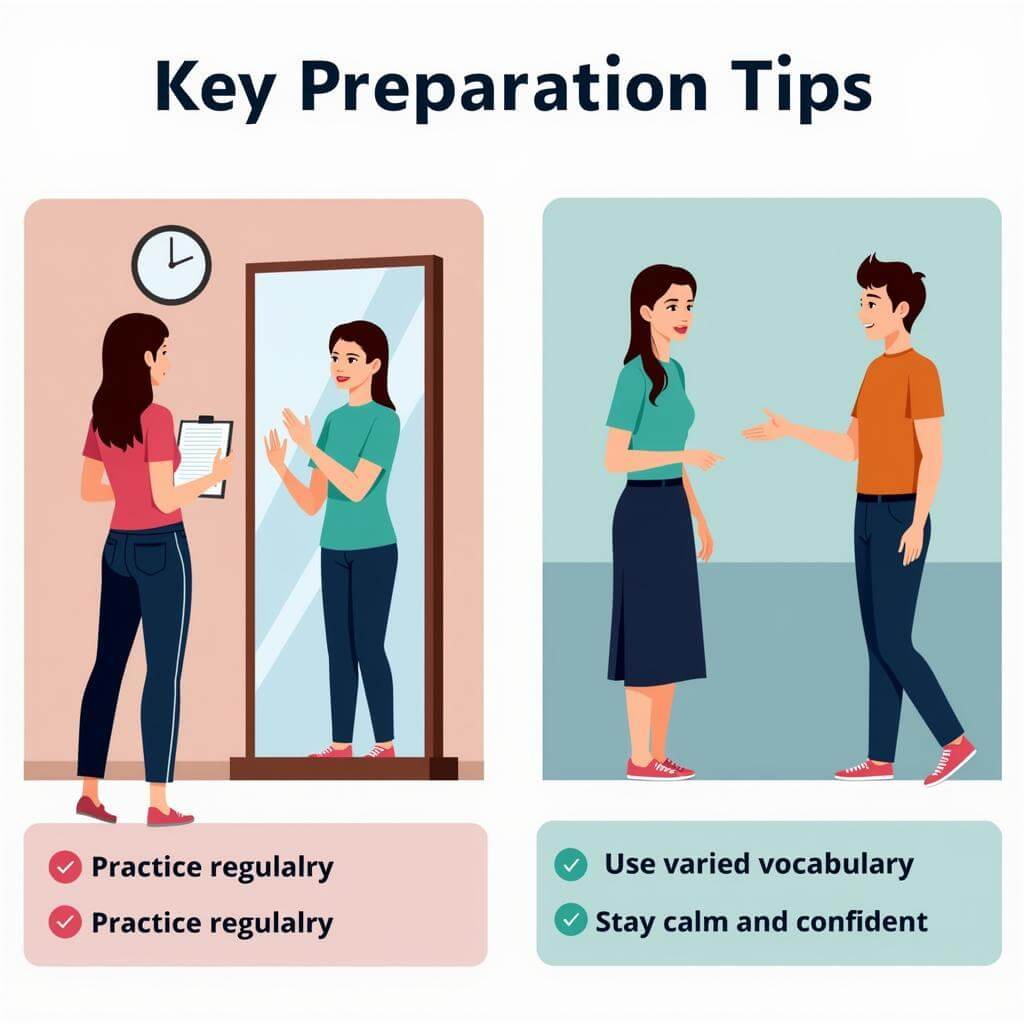Weather can often throw a wrench in our carefully laid plans. In IELTS Speaking, describing such situations is a common topic that tests candidates’ ability to narrate past experiences and express their feelings about unexpected events. This article will guide you through answering questions related to describe a time when the weather ruined your plans, providing sample answers and valuable tips to help you achieve a high band score.
Nội dung bài viết
Part 1: Introduction and Interview
In this section, the examiner may ask general questions about weather and its impact on daily life. Here’s a sample question with a suggested answer:
Examiner: How does the weather affect your daily routine?
Sample Answer (Band 7-8):
“The weather significantly influences my day-to-day activities. On sunny days, I’m more inclined to engage in outdoor pursuits like jogging or meeting friends at a park. However, when it rains, I tend to opt for indoor alternatives, such as reading a book or working on a hobby at home. Extreme weather conditions, like heavy snowfall or heatwaves, can disrupt my regular schedule, forcing me to adapt and make last-minute changes to my plans.”
Part 2: Long Turn
Cue Card:
Describe a time when the weather disrupted your plans.
You should say:
- When this happened
- What your plans were
- How the weather affected your plans
- How you felt about it
Sample Answer (Band 8-9):
“I vividly recall an incident from last summer when the weather threw a spanner in the works of my meticulously planned beach trip. My friends and I had been eagerly anticipating this outing for weeks, as we all needed a break from our hectic work schedules.
We had chosen a Saturday in July, typically known for its glorious sunshine and perfect beach weather. Our plan was to leave early in the morning, spend the entire day lounging on the sand, swimming, and perhaps even trying our hand at surfing. We had gone to great lengths to organize everything, from packing a sumptuous picnic to arranging transportation for our group of six.
However, as fate would have it, we woke up to the sound of torrential rain pounding against our windows. The sky was an ominous gray, and weather reports warned of a unexpected summer storm that would last throughout the day. This sudden change in weather completely derailed our plans. The beach was out of the question, and even outdoor activities in our local area seemed impossible due to the relentless downpour.
Initially, I felt incredibly disappointed and frustrated. All our careful planning seemed to have been for naught, and I couldn’t help but feel that our precious day off had been wasted. However, as we started to brainstorm alternative ideas, my mood began to lift. We ended up having an impromptu indoor picnic at my apartment, complete with beach-themed decorations and tropical mocktails. We played board games, shared stories, and even attempted to learn some hula dancing from YouTube videos.
In retrospect, while the weather did disrupt our original plans, it led to an equally memorable and enjoyable day. This experience taught me the value of flexibility and adaptability in the face of unexpected circumstances. It reinforced the idea that sometimes, the most unforgettable moments come from embracing the unpredictable and making the best of any situation.”
 Friends enjoying an indoor picnic due to rainy weather
Friends enjoying an indoor picnic due to rainy weather
Examiner: How did this experience change your approach to planning future outings?
Sample Answer (Band 8-9):
“This experience was truly eye-opening and led to a significant shift in my approach to planning. Now, I always make sure to have a contingency plan in place, especially for outdoor activities. I’ve become more adept at thinking on my feet and coming up with creative alternatives when things don’t go as expected. Moreover, I’ve learned to embrace spontaneity and see unexpected changes as opportunities for unique experiences rather than setbacks.”
Part 3: Two-way Discussion
Examiner: Do you think climate change is affecting the predictability of weather patterns?
Sample Answer (Band 7-8):
“Yes, I believe climate change is having a substantial impact on weather patterns globally. From what I’ve observed and read, extreme weather events seem to be occurring with increasing frequency and intensity. This unpredictability makes it challenging for both individuals and communities to plan effectively. For instance, areas that once had distinct seasons are now experiencing erratic weather conditions, which can affect everything from agriculture to tourism. It’s becoming increasingly important for us to adapt our lifestyles and develop resilience in the face of these changing weather patterns.”
Sample Answer (Band 8-9):
“Absolutely, the influence of climate change on weather predictability is becoming increasingly evident and concerning. The escalating frequency and severity of extreme weather events, such as hurricanes, heatwaves, and flash floods, are clear indicators of this shift. This unpredictability is not just a minor inconvenience; it’s reshaping entire ecosystems and economies.
For instance, in agricultural regions, farmers who once relied on consistent seasonal patterns for planting and harvesting are now facing unprecedented challenges. Similarly, coastal communities are having to reassess their infrastructure and emergency preparedness due to rising sea levels and more frequent storm surges.
Moreover, this unpredictability extends beyond just day-to-day weather. We’re seeing long-term shifts in climate norms, such as extended drought periods in traditionally wet regions or unusual warm spells in typically cold areas. These changes are forcing us to recalibrate our understanding of ‘normal’ weather and adapt our long-term planning accordingly.
It’s crucial that we not only acknowledge these changes but also invest in more sophisticated weather prediction technologies and climate resilience strategies. On a broader scale, this underscores the urgent need for global cooperation in addressing climate change to mitigate its impact on weather patterns and, by extension, on our daily lives and future planning.”
Examiner: How can technology help us better prepare for unexpected weather conditions?
Sample Answer (Band 8-9):
“Technology is playing an increasingly pivotal role in helping us prepare for and respond to unexpected weather conditions. Advanced weather forecasting systems, powered by artificial intelligence and machine learning, are significantly improving the accuracy and lead time of weather predictions. These technologies can analyze vast amounts of data from satellites, ground stations, and even social media to provide more nuanced and localized forecasts.
Moreover, the proliferation of smartphones and weather apps has made it possible for individuals to receive real-time weather alerts and personalized recommendations based on their location and planned activities. This immediate access to information allows people to make informed decisions and adjust their plans quickly when necessary.
In the realm of disaster preparedness, technology is revolutionizing early warning systems. For instance, IoT (Internet of Things) sensors can detect changes in water levels or air quality, triggering alerts before a flood or severe storm hits. Drones and satellite imagery are being used to assess damage quickly and guide rescue efforts in the aftermath of extreme weather events.
Furthermore, climate modeling technology is advancing our understanding of long-term weather patterns and climate change impacts. This knowledge is crucial for urban planning, agricultural practices, and infrastructure development, allowing communities to build resilience against future weather-related challenges.
However, it’s important to note that while technology provides powerful tools, it’s equally crucial to foster public awareness and education about how to interpret and act on weather information. The most sophisticated technology is only as effective as the human response to it. Therefore, alongside technological advancements, we need to prioritize climate literacy and emergency preparedness at all levels of society.”
Key Vocabulary and Phrases for High Scores
-
Throw a spanner in the works /θrəʊ ə ˈspænər ɪn ðə wɜːks/ (idiom): To cause unexpected problems or difficulties.
Example: “The sudden snowstorm really threw a spanner in the works of our hiking plans.” -
Adapt /əˈdæpt/ (verb): To change or adjust to new conditions.
Example: “We had to quickly adapt our outdoor wedding plans when it started to rain.” -
Torrential /təˈrenʃəl/ (adjective): (of rain) Very heavy and fast.
Example: “The torrential rain flooded the streets within minutes.” -
Derail /dɪˈreɪl/ (verb): To obstruct or prevent the progress of something.
Example: “The unexpected blizzard derailed our travel plans completely.” -
Contingency plan /kənˈtɪndʒənsi plæn/ (noun): A plan designed for an outcome other than in the usual plan.
Example: “Always have a contingency plan when organizing outdoor events in case of bad weather.”
Tips from an IELTS Speaking Examiner
-
Practice describing weather using varied vocabulary. Don’t just say “It was rainy”; try “It was a torrential downpour.”
-
Use idiomatic expressions related to weather and planning. This shows a higher level of English proficiency.
-
Develop your answers by explaining your emotions and the consequences of the weather disruption.
-
Prepare examples from your personal experience. Authentic stories are more engaging and easier to narrate.
-
Work on your pronunciation of weather-related terms. Clear pronunciation contributes to your overall band score.
-
Link your ideas coherently using appropriate transition words and phrases.
-
Show flexibility in your language use by paraphrasing and using synonyms.
Remember, the key to success in IELTS Speaking is not just about having a wide vocabulary, but also about using it appropriately and fluently. Regular practice with a variety of weather-related topics will help you feel more confident and perform better on test day.
By following these guidelines and incorporating the sample answers and vocabulary into your practice, you’ll be well-prepared to describe a time when you had to adjust your plans due to unforeseen circumstances, whether it’s weather-related or otherwise. Good luck with your IELTS preparation!


